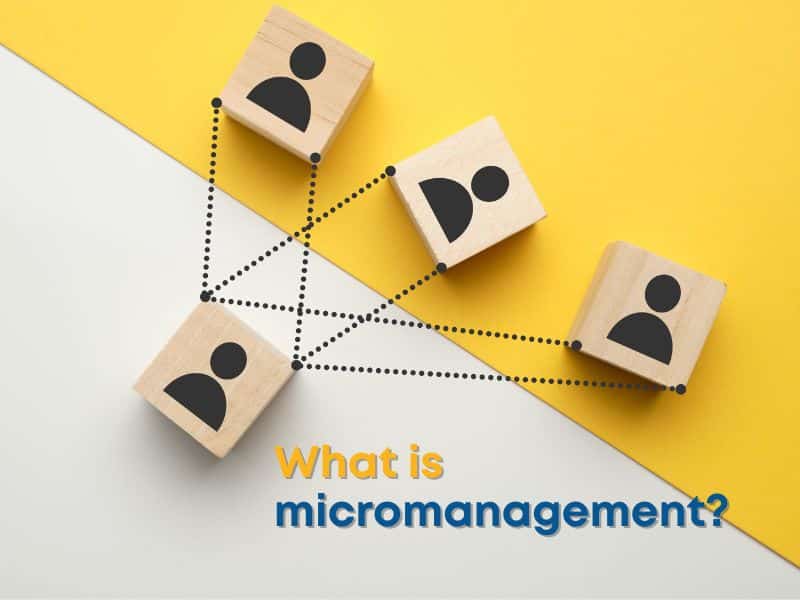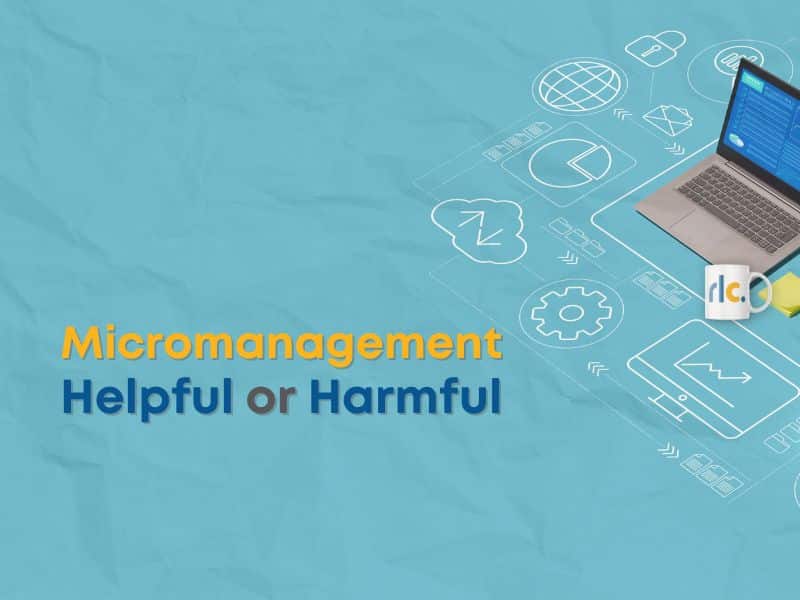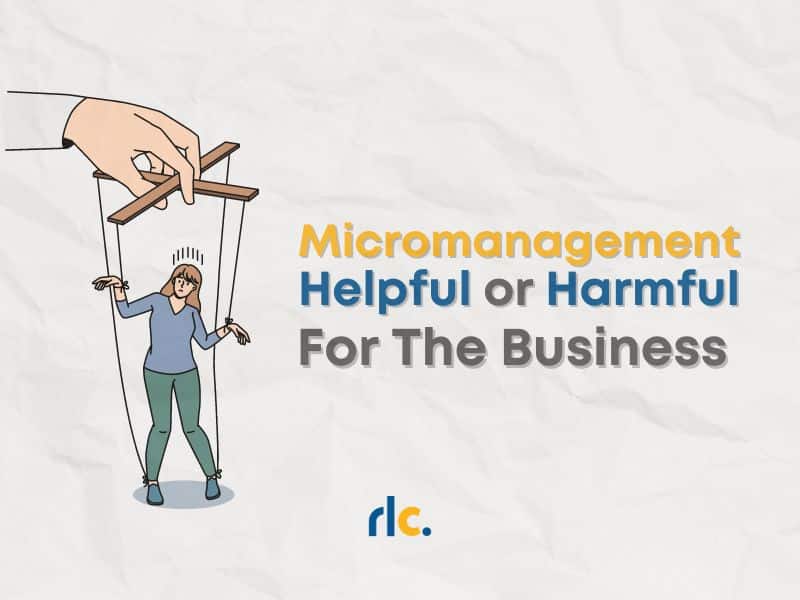Micromanagement has been a topic of discussion for years, with business owners and employees debating whether it’s helpful or harmful. We’ll take a close look at micromanagement style and its pros and cons so that you can decide if it’s right for your business.

What is micromanagement?
Micromanagement is the process of closely monitoring and controlling all aspects of a project or task. This can be done by an individual, or a team of people. Also can be seen as a good thing, as it can help to ensure that a project is completed on time and to the required standard. However, it can also be seen as a bad thing, as it can lead to employees feeling micromanaged and stressed.

Micromanagement Style, Helpful or Harmful
There are many different opinions out there about micromanagement style and whether or not it is good for business. Some people feel that it is essential in order to ensure that things are done correctly and efficiently, while others believe that it can lead to a feeling of being overworked and stressed out. So micromanagement style is helpful or harmful for the business?
One of the main pros of micromanagement is that it can help to increase productivity levels. When people know that they are being closely monitored, they are often more likely to work harder and get tasks completed on time. This can be especially beneficial in fast-paced environments where deadlines need to be met.
Another is can allow for greater control over a project or situation. This can be helpful when there are a lot of moving parts and you want to make sure that everything is going according to plan. Having someone constantly checking in on progress can help to catch any potential problems early on.
However, there are also some drawbacks to micromanagement. One of the biggest complaints is that it can lead to employees feeling like they are being micromanaged or constantly watched. This can create a feeling of being overworked and stressed, even can lead to feelings of frustration and resentment among employees, who may feel that they are not being trusted to do their jobs properly.

How to tell if you are a micromanager
There are a few key signs that you may be a micromanager:
- You feel the need to be in control of everything and everyone at all times
- You have a hard time delegating tasks and trusting others to do them properly
- You tend to micromanage the details of projects rather than focusing on the big picture
- You regularly give employees unsolicited feedback or criticism
- You find yourself constantly checking in on people and their work
If you find yourself exhibiting these behaviors, it may be time to reassess your management style. Micromanaging can be detrimental to both you and your team. It can lead to decreased productivity, higher levels of stress, and a general feeling of being overworked and undervalued. If you want to be an effective leader, it’s important to learn how to let go and trust others to do their jobs well.

How to avoid being a micromanager
Micromanagement is often seen as a negative trait in business. But it doesn’t have to be a bad thing! If you’re a micromanager, there are ways that you can avoid being too overbearing and still get the job done.
Here are a few tips:
- Delegate tasks and trust your team to complete them. This will help to take some of the pressure off of you and allow you to focus on other aspects of the business.
- Set clear expectations for your team members. This way, they will know exactly what is expected of them and won’t have to guess at what you want.
- Give your team members regular feedback. This will help them to know how they are doing and whether or not they are meeting your expectations.
By following these tips, you can avoid being a micromanager while still getting the job done!
Summary
There is no easy answer that micromanagement style is helpful or harmful for the business. It can be a good thing, to ensure that everyone is on the same page and working towards the same goals. However, it can also be a bad thing, stifling creativity and innovation. The key is to strike a balance between the two extremes and to know when to micromanage and when to step back.
How about you? What do you think about micromanagement style, Helpful or Harmful?

SEO Specialist and Client Success at RLC Outsourcing

